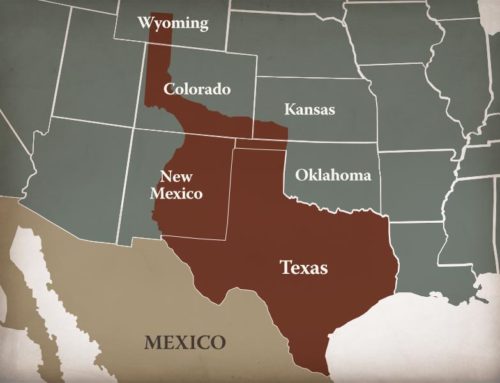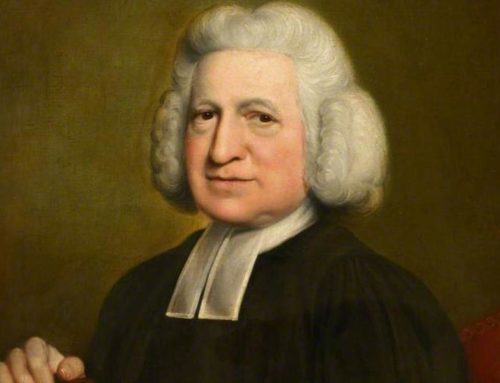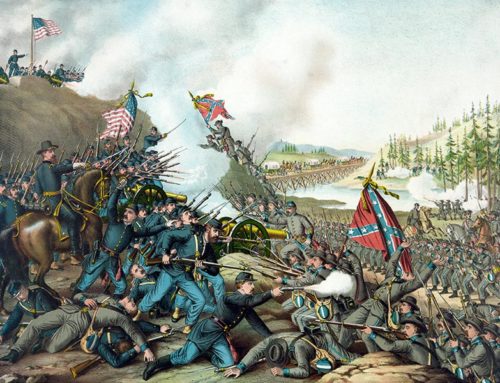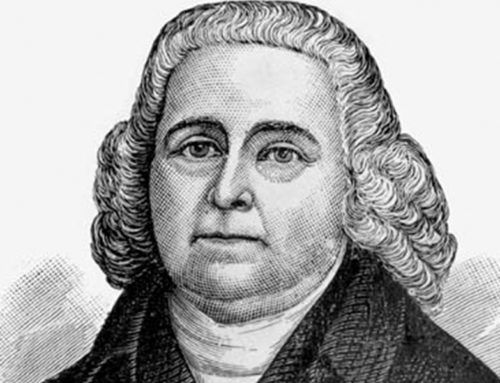

“One man of you puts to flight a thousand, since it is the Lord your God who fights for you, just as he promised.” —Joshua 23:10
The Birth of Alvin York, December 13, 1887
![]() he man who was destined to become one of the most decorated war veterans in United States history, came into the world as one of eleven children in a remote valley of East Tennessee. Alvin York’s family belonged to the Church of Christ in Christian Union of Pall Mall, Tennessee, a small Protestant sect, of Wesleyan Methodist theological heritage and pacifist in regard to war. Alvin was a devoted believer and served as the second elder in the church, though he had had to overcome his penchant for drunkenness and fighting. By 1917, the rhythms of life seemed perfect — he prepared to wed his sweetheart “Miss Gracie,” continue serving in the church and settle full-time into farming the rough fields and bottomlands bequeathed or purchased. And then the telegram arrived announcing that Alvin York was needed by the President of the United States to join the fight against the Central Powers in France in 1917.
he man who was destined to become one of the most decorated war veterans in United States history, came into the world as one of eleven children in a remote valley of East Tennessee. Alvin York’s family belonged to the Church of Christ in Christian Union of Pall Mall, Tennessee, a small Protestant sect, of Wesleyan Methodist theological heritage and pacifist in regard to war. Alvin was a devoted believer and served as the second elder in the church, though he had had to overcome his penchant for drunkenness and fighting. By 1917, the rhythms of life seemed perfect — he prepared to wed his sweetheart “Miss Gracie,” continue serving in the church and settle full-time into farming the rough fields and bottomlands bequeathed or purchased. And then the telegram arrived announcing that Alvin York was needed by the President of the United States to join the fight against the Central Powers in France in 1917.
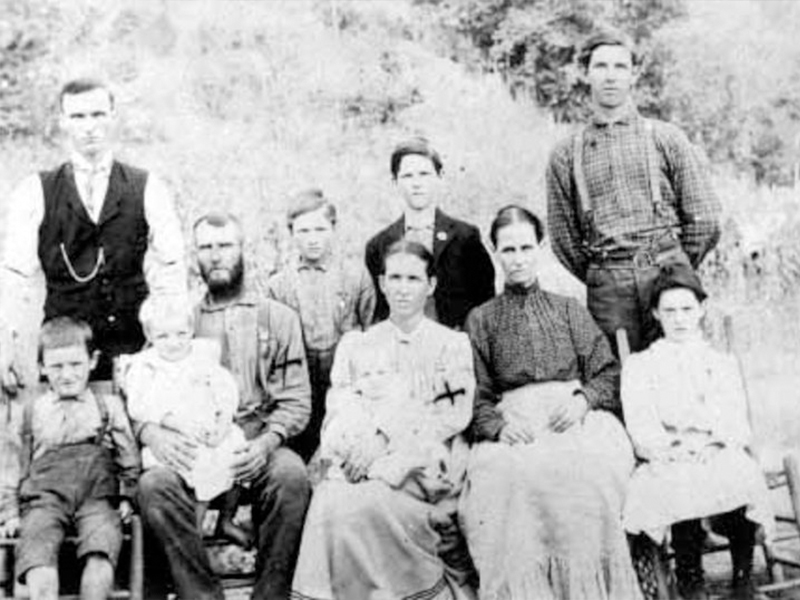
The William and Mary York Family in 1900 — Alvin is the tall young man standing on the right
Alvin immediately applied for “Conscientious Objector” status with the help and approval of his pastor, R.C. Pile. The army rejected York’s appeal, so he boarded the train twenty miles from home (the first train he had ever seen), and began basic training at Fort Gordon, Georgia. He was joined there by men from every state and moral condition, much to Alvin’s shock. Twenty percent of the men were foreign-born and barely spoke English. Alvin had been an avid hunter and the best marksman in Fentress County, winning many turkey shoots and other contests. He proved the top shooter in his training company as well. Alvin desired to serve his country, but his beliefs regarding killing placed him at odds with his officers and his training. His immediate superiors met with Private York and argued with him from Holy Scriptures that God allowed killing in a just war, and President Wilson’s “war to save democracy” was just. After a leave of absence to go home, meet with his pastor, think it over and pray, York changed his views and determined to do his duty with the army.
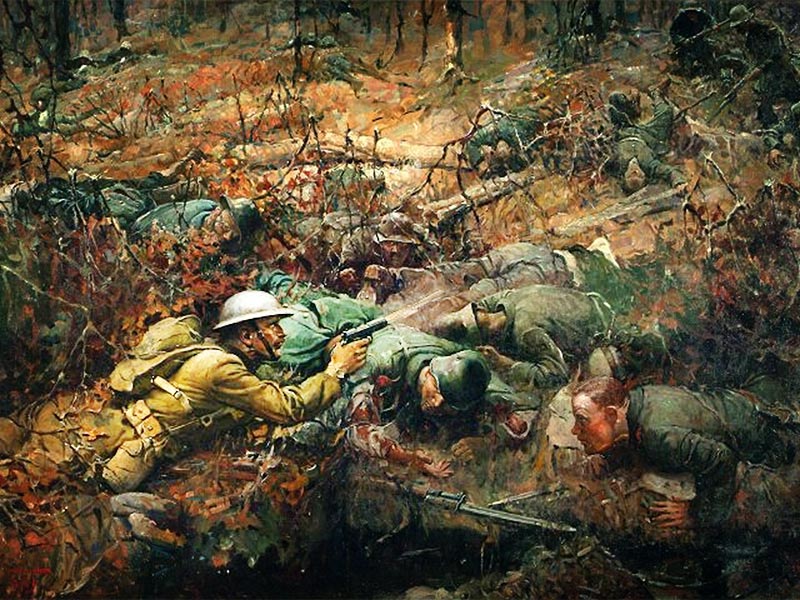
Battle scene painted in 1919 depicting the wartime heroism of Alvin York
As a Corporal in the 83rd, “All American” Division, Alvin York shipped out for France on May 1, 1918. York’s regiment, the 328th, was shuttled between quiet sectors, never getting an opportunity to actually test their mettle against the German trenches. He kept a diary of his day-to-day activities, noting that it did no good to worry about artillery fire: “You can’t keep them from busting into your trench, nor can you stop the rain . . . what’s the use of worrying if you can’t alter things. Just ask God to help you and accept them and make the best of them by the help of God.”
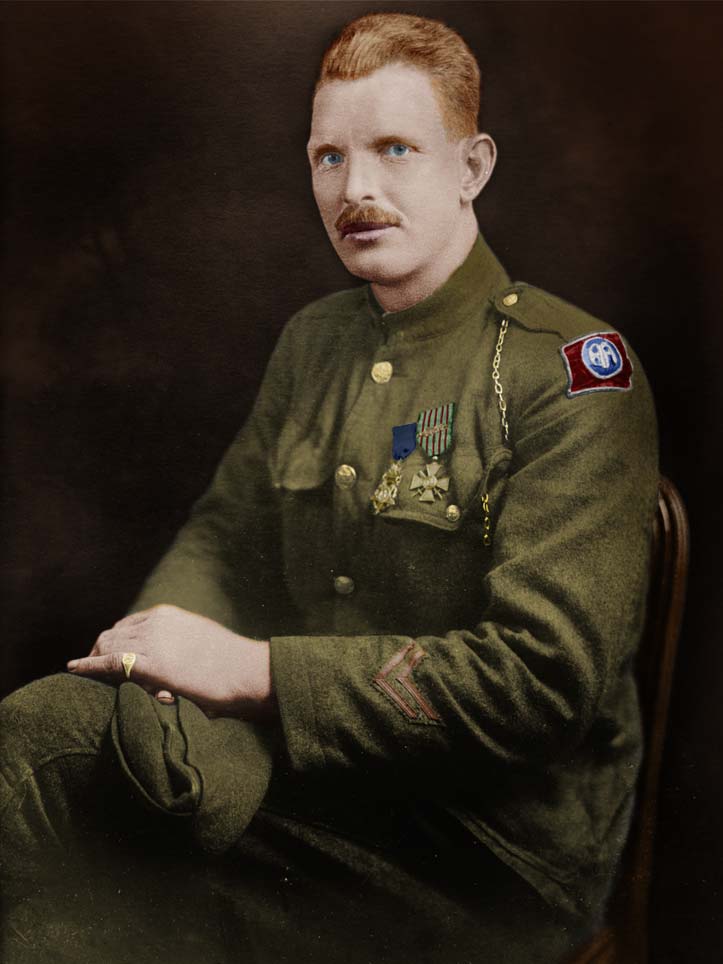
Sergeant Alvin Cullum York (1887-1964)
His Division began moving forward on September 27 and by October 8, York’s regiment was in the thick of the fight. Pinned down by heavy machine gun fire, the squad in which Alvin York was one of the corporals, moved to the rear of the enemy positions and surprised twenty or so German soldiers in camp; as they rounded up the prisoners, German machine guns swiveled around and opened fire, killing or wounding most of the remainder of the flanking company, leaving Alvin York the ranking soldier. York took charge immediately and moved to a firing position that enabled him to pick off the enemy machine gunners, “like shooting turkeys at home.” Corporal York shot so many men, that the enemy began surrendering in bunches, as ordered by one of the captured officers. One hundred thirty-two German prisoners were rounded up by Alvin and his handful of men and marched into the American lines. He received the Medal of Honor and many other decorations, including several from France and Great Britain. Alvin York returned home a hero, but one concerned primarily about testifying for Christ, and declaring that God had protected him and saved his life. He still hated war and killing and hoped that his deeds shortened the conflict and in the end, saved lives.
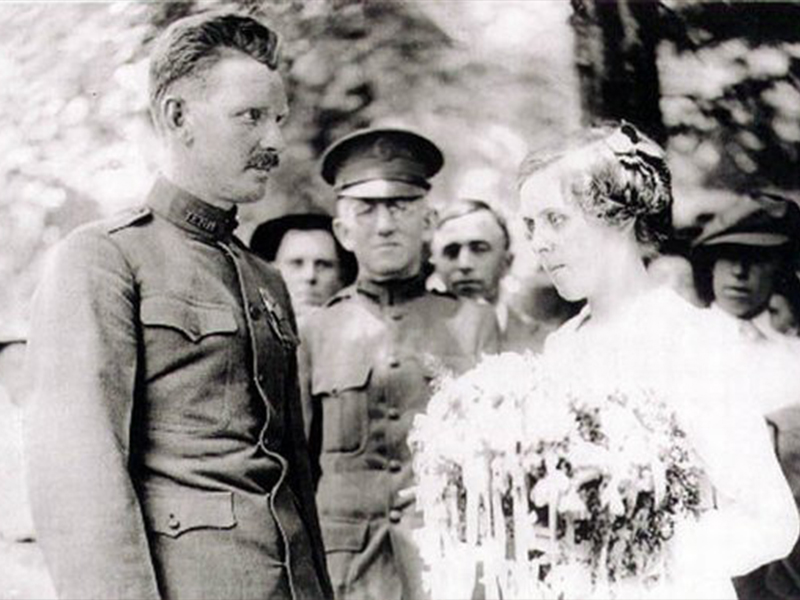
Alvin and Grace Williams were wed on June 7, 1919 by Tennessee Governor Albert Brooks


